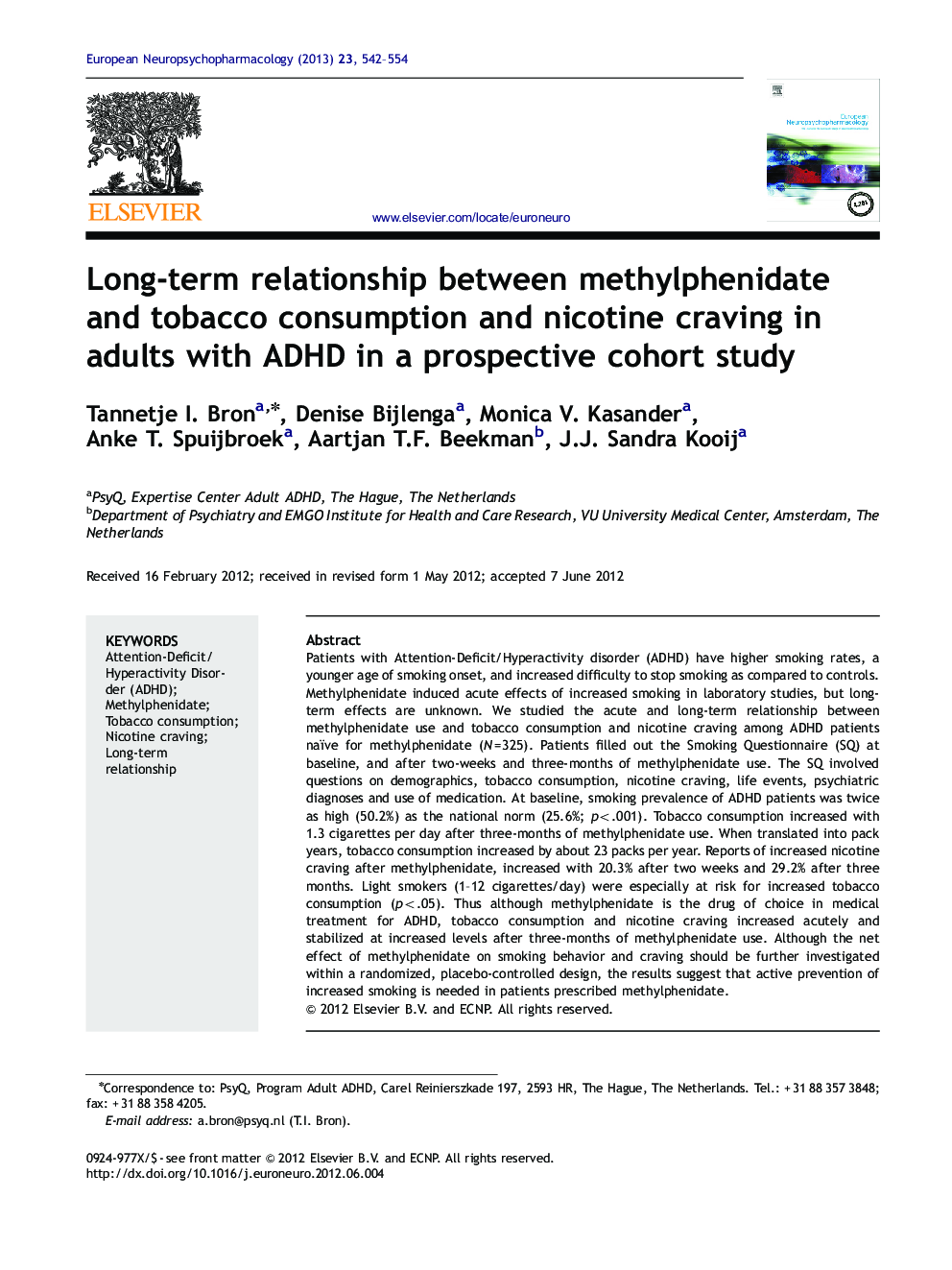| Article ID | Journal | Published Year | Pages | File Type |
|---|---|---|---|---|
| 10298198 | European Neuropsychopharmacology | 2013 | 13 Pages |
Abstract
Patients with Attention-Deficit/Hyperactivity disorder (ADHD) have higher smoking rates, a younger age of smoking onset, and increased difficulty to stop smoking as compared to controls. Methylphenidate induced acute effects of increased smoking in laboratory studies, but long-term effects are unknown. We studied the acute and long-term relationship between methylphenidate use and tobacco consumption and nicotine craving among ADHD patients naïve for methylphenidate (N=325). Patients filled out the Smoking Questionnaire (SQ) at baseline, and after two-weeks and three-months of methylphenidate use. The SQ involved questions on demographics, tobacco consumption, nicotine craving, life events, psychiatric diagnoses and use of medication. At baseline, smoking prevalence of ADHD patients was twice as high (50.2%) as the national norm (25.6%; p<.001). Tobacco consumption increased with 1.3 cigarettes per day after three-months of methylphenidate use. When translated into pack years, tobacco consumption increased by about 23 packs per year. Reports of increased nicotine craving after methylphenidate, increased with 20.3% after two weeks and 29.2% after three months. Light smokers (1-12 cigarettes/day) were especially at risk for increased tobacco consumption (p<.05). Thus although methylphenidate is the drug of choice in medical treatment for ADHD, tobacco consumption and nicotine craving increased acutely and stabilized at increased levels after three-months of methylphenidate use. Although the net effect of methylphenidate on smoking behavior and craving should be further investigated within a randomized, placebo-controlled design, the results suggest that active prevention of increased smoking is needed in patients prescribed methylphenidate.
Keywords
Related Topics
Life Sciences
Neuroscience
Biological Psychiatry
Authors
Tannetje I. Bron, Denise Bijlenga, Monica V. Kasander, Anke T. Spuijbroek, Aartjan T.F. Beekman, J.J. Sandra Kooij,
